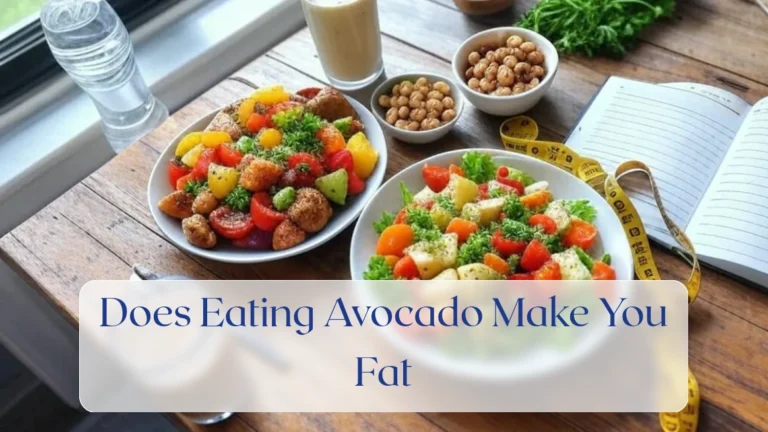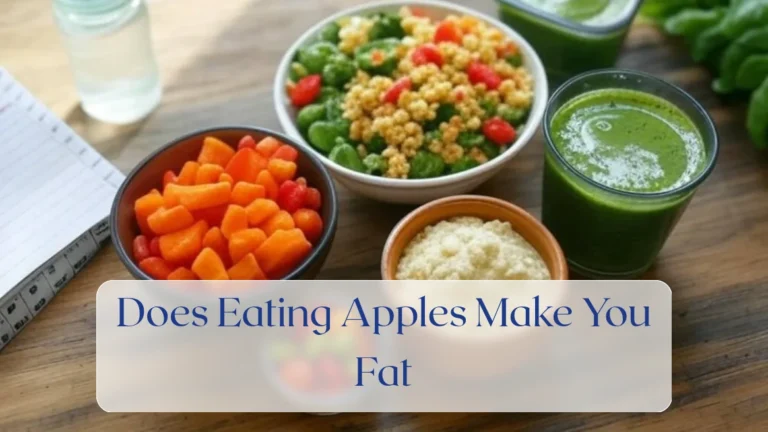The Surprising Truth
Skipping meals to lose weight? Think again! Many believe that eating less automatically equates to weight loss. But what if I told you that restricting your calorie intake too drastically can actually make you fat? This might seem counterintuitive, but understanding how your body works is crucial to achieving sustainable weight loss. This post directly addresses the question: “Can not eating make you fat?” We’ll explore the science behind weight regulation, the dangers of crash dieting, and build the framework for healthy eating habits within an Indian context.
The benefits of understanding this are threefold; You’ll gain invaluable insights into your metabolism, develop healthier eating habits, and avoid common weight gain traps. While this piece focuses on managing health and weight in the Indian context, the principle remains the same as general weight management advice; don’t underestimate the complexity of your personal metabolism. While the information here acts as great knowledge, consult your nutritionist or any given trained professional for personal health advice.
The Science Behind Your Metabolism
Your body is incredibly complex, and its response to calorie restriction significantly depends on the delicate balance among hormones determining both fat accumulation and fat loss. When you drastically reduce calorie intake, your body interprets this as a form of starvation. It triggers several physiological responses primarily focused on conserving energy.
Your metabolism doesn’t take kindly to abrupt changes. This means that when you dramatically reduces your daily intake for an excessive number of consecutive days your metabolic system actively initiates metabolic slowdown, also known as calorie restriction adaptation where your thyroid hormone and numerous others alter function to aid in the bodies reduced energy state. This affects processes like digestion and reduces the calories required by the body to function in order to use only as high a caloric demand as necessary thus reducing the excess intake available for muscle maintenance. Essentially the body is slowing this metabolic rate as to conserve excess energy resulting in weight staying put or continuing on its prior upwards trek upwards.
This slowdown makes it harder to lose weight. Additionally, reduced hormone synthesis of specific vital anabolic hormones will affect your abilities to maintain muscle mass. Your brain and body are closely associated, therefore a lowered energy state for extended amounts of time will affect the brain.
Additionally, hormones like ghrelin (which increases appetite) increase dramatically in these hunger states, while leptin (responsible for suppressing appetite) decreases; thereby boosting appetite and adding pressure toward less dietary control and less success. These hormonal changes make it exceptionally difficult to maintain this specific regimen. You, subsequently will likely quit before achieving results, eventually regaining any lost and causing even greater caloric addition than originally expected. Your hunger will be intensified in relation to its associated effect on satiation hormones, in the form of metabolic adaption. Any gained or maintained energy is, subsequently stored preferentially as fats. This mechanism is known as an efficiency-based response to preserve energy, known otherwise as an ‘adaptational response’.
The Yo-Yo Effect of Crash Dieting
The dangerous yo-yo effect is characterized by cycles of weight loss and regain. Crash dieting— characterized by very low calorie intakes or starvation – invariably results in weight loss initially. This loss primarily tends be water or glycogen (stored carbohydrates from muscles within the adipose reserves), making the initial period appear impressive thus making this dieting plan easily and quickly marketed to the more commercially driven audience(s). The subsequent, and extremely unhealthy period involved metabolic adapation and compensatory hypertrophy for both maintaining survival and reattaining prior calorie reserves.
This causes further fat build-up and muscle-degradation in the long run, frequently worsening fat retention via multiple mechanisms previously described above resulting weight fluctuations and increasing the difficulty of future weight management given the loss of substantial amounts of active tissue. Continued exposure produces cycles resulting in what often forms extreme cyclic ‘addiction’ states given their negative impacts on not just physical, but importantly psychological factors via both brain plasticity and self-image, especially in the youth. Your body reacts drastically to drastic deprivation – a significant stress. Sustained, long term caloric restriction can also place undue metabolic strain increasing medical susceptibilities and overall longevity decreases as well; ultimately damaging essential organs, particularly through its stress on hormones via organ damage – and thereby ultimately accelerating ageing itself.
Mindful Eating vs. Skipping Meals
Mindful eating involves paying attention to your hunger and fullness cues, while preventing or significantly curtailing emotional eating and selecting high integrity nutrient rich options for better health. Enjoy food that provides you with pleasure whilst promoting nourishment to the body as an entity and not as mere calories; providing food as something rewarding versus calorie deficient.
The primary benefit of this approach emphasizes long term solutions, preventing drastic yo-yo crashes in weights which can also produce far more significant adverse results on physical and mental qualities alike when engaging on any nutritional/physical exertion program- especially when following fad diets or nutrition products whose marketing materials make grand statements and make outrageous statements to ensure market competitiveness/share as their prime, rather than public health concerns, goals as it should prioritize above a companies’ market success as they should inherently be mutually inclusive in aims if truly ethically established with true moral values placed upon the pursuit of business enterprise- this becomes quite paramount especially under highly susceptible individuals, especially during their most developmental stages of body growth.. This method works to improve both nutritional uptake and caloric demand/consumption over considerable spans of lifetime.
Prioritise regularly spaced quality meals consisting essential macro & micronutrients; thus, maintaining a high quality diet throughout life. Include both fresh produce, and quality healthy fats which greatly aids health and longevity benefits given it forms a substrate for not only satiation and caloric conservation, but additionally as a support nutrient in the bodies numerous hormonally controlled mechanisms and reactions by allowing increased availability allowing improved synthesis for an appropriate amount, or conversely if deficient may cause problems by its shortage in the body during maintenance work necessary in preserving healthy and balanced hormonal and metabolic states.
Common Indian Dietary Mistakes That Lead to Weight Gain
Unfortunately, commonly prescribed dietary regimes tend lean preferentially towards excessively high levels of certain food components and/or low to sub optimally acceptable levels based given population genetics may further predispose genetic susceptibility to a range of health problems later in life- this must always considered irrespective ethnicities are addressed, particularly during nutritional prescriptions.
- Over-reliance on processed foods and sugary drinks: Indian cuisines often contain a high concentration of sugar often refined into simple structures- given there ease in sourcing compared towards ‘healthier’ versions( which cost more) as an easier option to acquire across Indian populace therefore representing larger problems in public health outcomes.
- Unbalanced proportions of carbohydrates, proteins, and fats: A great example from common Indian diets commonly display significant quantities of various nutrient subtypes; unbalanced between these aforementioned three nutritional macrocategories can produce various outcomes negatively concerning weight gain without even necessarily involving excessive intake from calorie counts. Many instances also may lack sufficient quantities of each of aforementioned categories – particularly towards proteins including many vital & essential micronutrient(s).
- Skipping important meals like breakfast: The crucial role this nutritional intake is both metabolic and hormonally vital to regulate energy both later and subsequently, to set an energy/caloric level early in the diurnal cycle by reducing excessive highs in circulating blood sugars – these result from eating food only only later, thus creating a higher fluctuation, and less stable and balanced internal physiological environment overall.
Building a Sustainable Weight Management Plan (Indian Context)
Sustainable weight management in this specified region within our context means selecting a proper plan for this involves including familiar Indian foods that align with healthy eating principles. It’s not about drastic cuts or restrictions, but an honest reevaluation of dietary choices and adjustments for sustainability.
- Incorporating traditional Indian foods for weight loss: Many Indian foods, such as dals or pulses, millets, vegetables, many local-grown fruits such as mangoes, and lean protein options like fish and chicken (avoid excessive levels of fats within processed versions that are usually excessively loaded with excess saturated fats), are low in calorie content with abundant provision micronutrients; ensuring nutritional sufficiency with minimal caloric counts, in proportion to its abundance, thereby increasing health outcomes favorably both in improving both its capacity function as well as to extend healthy longevity. Further improving many areas concerning bodily integrity across numerous systems. This should be performed as an addition to maintain metabolic rate so weight loss occurs within the healthier parameter allowing healthier, more stable loss when undertaken within other elements this balanced weight plans discussed within.
- Portion control strategies for Indian meals: Be mindful of serving sizes within portions. The traditional ‘thali’-style of eating can be advantageous enabling the user monitor what goes at both a glance- improving selection based on preferences thus greatly encouraging higher nutritional compliance even with self-created plans- as long term success must depend heavily towards maintaining compliance overall as the main determinant/factor for its final ultimate success.
- The role of exercise and activity in weight management: Exercise and regular active activities greatly compliments any nutritional or dietary based weight or healthy regime by substantially promoting and improving many metabolic and physiologic properties. Improving weight loss overall and promoting long-lasting health outcomes favorably alongside its beneficial effects of better mental clarity/improvements in disposition given associated improvements in self-esteem and self-image to improve holistic success concerning mental as well as the body (fitness)- again mutually reliant upon and complimenting the respective other aspect for maximized healthy outputs – improving outcome chances exponentially relative towards nonexercise participants for success concerning health, fitness, and wellness together.
Frequently Asked Questions
- What’s the best way to lose weight healthily in India? This should be a multifactoral tailored plan; comprising sustainable dietary modifications, which is discussed frequently in regards combining portion controlled, carefully selected nutritious food components forming both healthy, well nutritious components alongside other appropriate amounts of food- while also appropriately supplementing the addition of an effective personalized fitness plan or scheme together with your practitioner in discussion. Combining both facets provides synergistic healthful benefits providing considerable improvements by reducing the chance of failure dramatically, while improving the duration for successful changes when adapting and maintaining a regime tailored towards individuals’ personal factors or conditions that may differ and are greatly affected such as both hormonal or any metabolic health condition(s) affecting or having potential impact upon your long-term health, well-being, or longevity itself for maximal personal enhancement or benefit and reducing negative potentials in the individuals future outcomes positively.
- Can intermittent fasting make you fat? Intermittent fasting (IF) can be effective for some if done correctly, emphasizing food selections and appropriate adjustments per its overall individual caloric demands during nutritional programming – however, insufficient compliance, inappropriate foods elected or simply inconsistent practices can hinder its effectiveness and make your chances of weight gain more plausible and probable rather than achieving success as desired.
- Is it okay to skip a meal occasionally? Skipping a meal occasionally isn’t disastrous— however consistent omission regularly does greatly decrease successful outcomes given it directly relates towards hormonal and physiological regulation systems – affecting the hormonal and homeostatic nature of health functions – thus it becomes directly relevant towards both maintaining its functions overall – by decreasing likelihood for negatively impacted health related concerns, while also improving the overall positive physiological state or condition of someone actively improving both short, and therefore long term benefits/outcomes. Thus intermittent omission greatly hinder overall attempts to maximize individuals benefits rather improving them effectively given this impact its importance metabolically. Skipping breakfast, in cases, poses even problems overall to success more so if intending to improve or retain wellness, especially related towards this goal.
- How can I boost my metabolism naturally? Metabolism varies greatly across individuals, and attempts for dramatic improvements can only be realistically achieved through improving nutrition and health by a suitably designed adapted exercise and nutritional regimens tailored specifically only for the individuals parameters based primarily within considerations based upon genetic factors in order that a program be effective given these numerous parameters already inherently present before even implementation may begin. Ultimately boosting solely your metabolism naturally is a long arduous road given natural limitations to its natural boundaries – often making supplementation the superior solution even assuming dietary and exercise approaches alone – to improve or benefit from metabolic regulation to ultimately achieve whatever a person hopes to accomplish health-wise. Therefore always consulting a personal trainer /physician in improving either aspect – this especially becomes appropriate if undertaking advanced physical activities more than typical day-today movement /actions.
- What are some common Indian myths about weight loss? Several persist — the concept many diets heavily promoting ‘immediate solutions’ (very quick results claims) are often based around short termed measures frequently lacking in either effectiveness beyond short duration gains or frequently worse, including many methods containing harmful aspects for body especially metabolic stress from drastically restrictive calorie deficit induced diets – especially those following some fad-produced commercial weight-loss ‘solutions’ are commonly guilty doing and therefore misleading, often deceptive practices – including these aspects not only within their marketing but are additionally contained practices even with nutritional advice itself to boost business prospects whilst disregarding patient concerns (ethical misgivings are a problem). Furthermore some ‘miracle methods’ to improve metabolism naturally may actually represent unsubstantiated health risks, and not producing any benefits even despite considerable investments towards monetary or otherwise (time lost) losses.
Conclusion
Extreme calorie restriction backfires resulting more frequently towards negative outcomes in regards both overall health as well as weight/fitness goals being attained, often even producing worsened end outcomes concerning weight in relation to health status given other relevant negative impacts given many methods used- emphasizing again, the crucial importance understanding the complex mechanisms involved within weight regulation using careful selections towards choosing appropriate healthy strategies and adopting the best methodologies involved towards implementing successfully alongside consistent management across an extended timeframe – ultimately relying again upon consistency (compliance given individuals must follow correctly) alongwith effective management during weight goals is attempted given overall impact concerning numerous physiologic changes occurring metabolic processes undergoing – requiring personalized approached tailored towards specific differences among any participants or applicants overall therefore making this entire endeavor unique and highly personalized thus depending solely on individual efforts applied when combined appropriately into balanced approached ensuring high probability within weight goals may become readily attainable when both nutritional intakes in balanced amounts including appropriate fitness regimens to support improving this overall balanced regimen thus greatly improve an efficient path maximizing overall goals attainment thus overall positively augmenting success rates, which this emphasizes both holistic health alongside attaining weight related targets, not just targeting sole specific parameter alone as usually attempted/focused by many nutritional regimen strategies or plans; showing their lack overall compared to those holistic approaches encompassing holistic wellness-based plans rather those attempting short-cuts or single parameters in which may appear appealing given promises, yet contain negative repercussions greatly hinder eventual outcomes greatly by overlooking these extremely important, related factors during the adoption and maintenance across any given period involved with this weight-loss regimen. Remember regularly spaced healthy meals, mindfulness around food quality & selection, consistent suitable exercise/physical activity as combined practices ensure successful & effective implementation/weight outcomes towards personal weight goals (within both the health, wellness spectrum)- thereby stressing, promoting holistic efforts that work over all multiple integrated methods combined rather limiting plans to singular approaches usually poorly implemented therefore reducing probability/high probability achieving long term success rates drastically or otherwise limiting these to unsustainable timeframe plans usually. Share your thoughts and experiences in the comments below!



